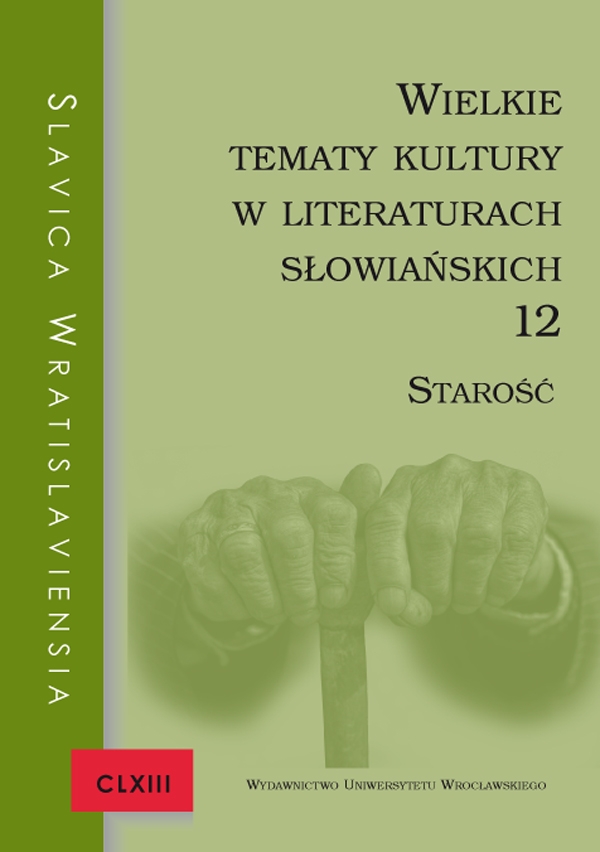

Artykuły

The lyrical diary of the aging man Prosté motivy by Jan Neruda
The present article discusses the motif of ageing in the collection of poems Plain Themes Prosté motivy by the highly esteemed Czech writer Jan Neruda. The theme of coming to terms with aging is especially apparent in the initial version of the collection — a lyrical cycle of 1879, which centres upon autumn natural motifs, corresponding with the situation of the speaker of the poems as well as the author himself. Apart from traditional reactions to the aging process melancholy, recapitulation, sorrow for the bygone youth, we can observe a continuing striving for erotic experience, testifying to the speaker’s desire to fully enjoy the remaining time of his life. At the end of the cycle, Neruda attempts at coming to terms with death by means of two powerful poems, conceived as an authentic, almost diary-like account of the horrible sense of the inevitable end.
In the definitive book version of the cycle, the topic of aging is incorporated into a new concept of the collection, which is the confrontation of the linearity of life and the circuitous course of the natural cycle. The reflection upon aging is placed in the “Autumn” section of the collection, whose melancholic and recapitulative character is even more prominent whereas the erotic themes have been relegated to the “Summer” section. The death of the speaker is conceived in a more distanced way, making use of a rich allegorical apparatus. The book version also introduces the topic of immortality, whose source is not, rather surprisingly, a work of art of everlasting value, but that of procreation. Neruda thus confirms his anti-aesthetical attitude, which makes him stand out in the context of the prevailing Parnassian orientation of Czech poetry of the period.
Liryczny dziennik starzejącego się mężczyzny Prosté motivy Jana Nerudy
W artykule podjęty został temat starzenia się w zbiorze poezji Prosté motivy autorstwa czołowego czeskiego pisarza Jana Nerudy. Radzenie sobie ze starzeniem jest znaczące zwłaszcza dla źródłowej wersji zbioru — lirycznego cyklu z roku 1879 skupionego wokół jesiennych motywów przyrodniczych korespondujących z sytuacją życiową podmiotu lirycznego i samego autora. Obok stereotypowych reakcji na proces starzenia się melancholia, podsumowania, tęsknota za utraconą młodością spotykamy się tu także z ciągłym pragnieniem erotycznych przeżyć zdradzających chęć cieszenia się w pełni czasem, który pozostał podmiotowi lirycznemu. Pod koniec cyklu Neruda starał się pogodzić z tematem zbliżającej się śmierci za pomocą dwóch sugestywnych wierszy koncypowanych jako autentyczny, niemal dziennikowy opis uczucia strachu przed nieuchronnością przemijania.
W ostatecznej wersji książkowej temat starości został dołączony do nowego konceptu zbioru, którym stała się konfrontacja linearności życia ludzkiego z wiecznym biegiem cyklu natury. Refleksje nad procesem starzenia się włączone są przeważnie do części Jesiennej i, w odróżnieniu od pierwotnego cyklu, podkreślony jest tu element melancholijny i podsumowujący tematyka erotyczna została przesunięta do części Letniej. Śmierć podmiotu lirycznego jest omówiona dość niejednoznacznie, zużyciem potężnego aparatu alegorycznego. W wersji książkowej pojawia się również temat nieśmiertelności. Jej źródłem nie jest dzieło artystyczne, ale spłodzenie potomstwa. Neruda w ten sposób potwierdza swoją antyestetykę, co odróżnia go od dominującej parnasistowskiej orientacji ówczesnej liryki.